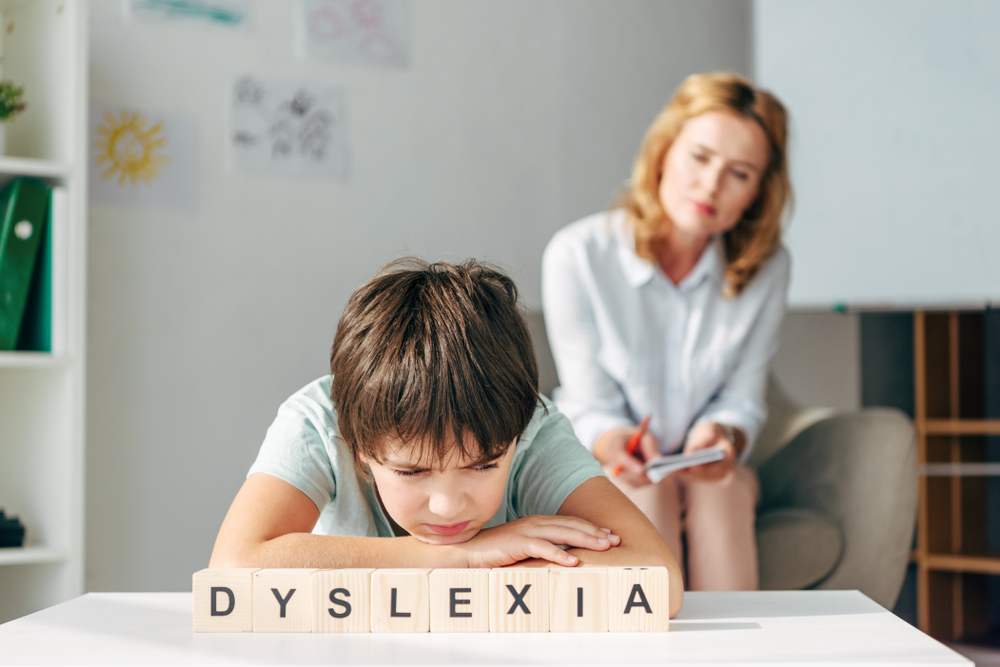Debunking Frequent Myths On Dyslexia Conditions

Myths and misconceptions are sometimes relatively harmless within a given subject, but in other cases they can be harmful and detract from several specific areas. One good example here is within any kind of learning disability or similar condition, such as dyslexia - incorrect information about this condition that becomes part of public discourse can be very harmful to people who manage it, plus to those who provide care for it.
At Learning Technics, we're proud to offer both at-home and in-person dyslexia treatments for kids who manage this condition, plus their parents and anyone else assisting them. We're also happy to correct any of the potentially harmful myths you may have heard about this condition, from how and why it forms to the kinds of impacts it can have on those who deal with it. Here are some of the most common myths about dyslexia, debunked and with proper information instead.
Myth #1: Kids With Dyslexia Just Aren't Trying Hard Enough
One of the silliest and nastiest myths out there regarding dyslexia is that it's simply a sign of laziness. This couldn't be further from the truth - dyslexia is a real and valid condition that affects how someone's brain processes information, not merely an indication that they don't care about their studies.
Specifically, dyslexia research indicates that the brain functions very differently in people who have it, with their brains not properly connecting certain messages from one section to the other. With this in mind, it's best to assume that a student is trying as hard as they can and then look into the possibility of them having dyslexia.
Myth #2: Dyslexia Goes Away With Age
Down slightly related lines, there are some who believe that dyslexia is just a temporary thing that only exists while kids are learning - that it'll go away with time. Unfortunately, this isn't always the case - research indicates that dyslexia can persist into adulthood for many people who have it, though treatments and coping strategies can help them manage it better.
In other words, trying to "wait out" dyslexia in a child or young adult is not always the best approach - instead, it may be best to get them the help that they need sooner rather than later.
Myth #3: Dyslexia Only Affects Reading & Writing
Another fairly common misconception about dyslexia is that it's purely about reading and writing skills - basically, that someone who has it will have trouble with those two things but nothing else. Again, this isn't the case - dyslexia can affect a person's ability to make visual connections and organize information in their head, among other things.
In fact, some people who have dyslexia report finding it easier to visualize things and understand concepts that involve spatial awareness or physical movement rather than those involving reading, writing, or abstract concepts. It's best to think of dyslexia not as something that only affects two areas but rather as a condition that can affect many aspects of someone's learning and cognitive processing alike.
Myth #4: Dyslexia Relates to Vision Issues
While it's indeed possible for someone to have both dyslexia and vision problems, there's no research currently connecting the two. Dyslexia is a condition related to how the brain processes information, not an issue of visual acuity or anything of the sort.
Now, some people may have problems with visual perception or processing - but again, these are not connected to dyslexia, and it's best to look into any vision issues that a person may have separately from their learning disability.
Myth #5: Dyslexia is Only for English-Speaking People
We're not sure where this myth came from, but it's wrong nonetheless - dyslexia can affect anyone who speaks any language, not just English. The symptoms may vary slightly across different languages due to their differing rules and construction, but the core nature of the condition remains the same in most cases.
In other words, it doesn't matter what kind of language someone is speaking - they can still have dyslexia and the condition's effects can still be significant.
Myth #6: Dyslexia Symptoms Are Always the Same
Some people think that dyslexia is such a specific thing that it always manifests in the same way across different people. But this isn't true - dyslexia can affect many different aspects of someone's learning, and there are various levels of severity as well.
In fact, some people may have very mild symptoms, whereas others may have more severe ones that make it much harder for them to learn. It's important to always keep this in mind and never assume that two people who have dyslexia will have the same exact experience with it.
Overall, these myths should help dispel some of the misinformation out there regarding dyslexia - and we hope they've also shown just how wrong some of the common assumptions about this condition actually are. By better understanding dyslexia, we can provide more support and care to those who have it - which is something that everyone should strive for.
For more here, or to learn about any of our at-home, online or in-person treatments for dyslexia, ADHD or other conditions, speak to our caring team at Learning Technics today.